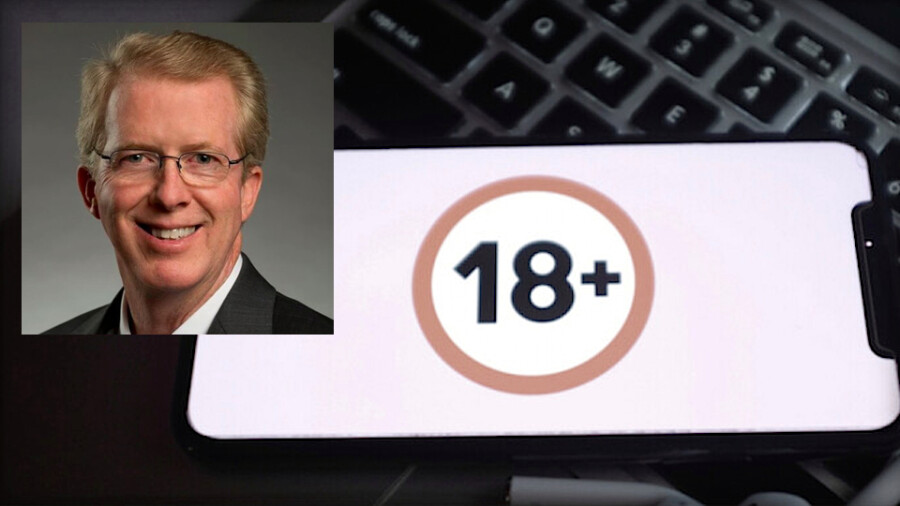
MONTGOMERY, Ala. — The Alabama House Judiciary Committee held a hearing yesterday on a “copycat bill” of the legislation successfully passed in Utah last month, aiming to force phone and computer manufacturers around the world to install default “porn filters” on devices sold in Alabama.
The bill was introduced by Rep. Chris Sells (R, Greenville) as part of a current effort — coordinated by anti-porn lobby NCOSE (formerly Morality in Media) and other religiously motivated crusading organizations — to pass state-by-state laws making this requirement.
Sells told the committee that, although state laws prohibit children from buying alcohol and cigarettes, “yet we have an iPhone or a mobile device when they’re perhaps 10 years old and all they’ve got to do is punch a couple of buttons and it’s wide-open to every kind of adult thing you can imagine.”
Urging State Intervention for Negligent Parenting
According to a report by local news portal Al.com, Sells said that he was demanding state intervention on behalf of “children whose parents haven’t gone to the trouble to make sure the filter is activated.”
“What I’m finding out is that most parents are not taking the time to download an app or to go into the settings of these phones, and just buy a child a phone and hand it to them,” Sells told the committee.
The committee is expected to vote on the bill next Wednesday. Two people spoke in favor of the bill, while two representatives of the entertainment and wireless industries spoke against it.
Montgomery DA’s Tales of ‘Porn Addicted’ Children
Tim Anderson Jr., director of the Helping Montgomery Families Initiative at the Montgomery County District Attorney’s Office, testified about a supposed state-wide crisis of “porn addiction,” a definition that is contested by most psychology research.
Anderson described a child with whose case he was “involved with” as “a full-blown addict by the age of 10.”
“He was often unsupervised with over four devices that gave him unlimited access to pornography,” Anderson continued, adding that “the child is 12 and remains addicted.”
Cleo Washington spoke on behalf of AT&T as part of a group of experts that pointed out that the bill was not the best way to protect children from pornography.
“Mandating filter requirements we believe is not the most effective approach, but instead the most effective approach to get control of this is through educational collaboration,” Washington said. “States working with companies and other stakeholders working together to educate consumers about the tools that are available to them, especially in today’s ever evolving world of technology. We also think it’s critical to continue to educate parents.”
The Utah Deadline Looms
The Alabama bill would become the first of the other five state bills that Utah has required before their bill would go into effect in early 2022.
Anti-porn lobbies continue targeting red-state legislatures through religious politicians to obtain that number before the deadline. These are the same legislatures and sponsors behind that 2016-2020 campaign to declare a bogus “public health crisis” around pornography, an initiative that faltered when the COVID-19 pandemic started and the funds were needed for an actual epidemic, and not one made-up by religious lobbyists.
Inset: Alabama State Rep. Chris Sells (Alabama State House)
